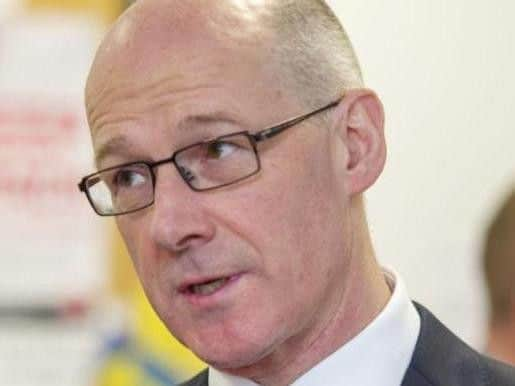Teacher retention is a problem, John Swinney admits amid staff crisis
Speaking to Holyrood’s education committee, education secretary John Swinney pledged to address teachers’s pay in a bid to retain staff in schools - and also said he would consider waiving the postgraduate course fee for “career switchers” who want to move into teaching to plug gaps in schools.
The education secretary also admitted that the government had failed to recruit its target of 4,058 new teachers entering education training this year, with just 3,861 currently enrolled on courses.
Advertisement
Hide AdAdvertisement
Hide AdEarlier this week, The Scotsman revealed that Moray Council had warned parents that their primary children may have to attend school part time due to a lack of staff. It also emerged this week that Strathconon Primary School in the Highlands is to close after Christmas and its 17 school and two nursery pupils to be transferred to another school 12 miles away, after the local authority failed to recruit two new teachers.


Mr Swinney told the committee that more Scottish teachers had left than the government had predicted through its “workforce planning model”.
He said: “I think the retention rate of teachers has been lower than we would have expected. More teachers have left the profession than the model would have expected to be the case.”
He added: “I am the first to admit there are challenges about teacher recruitment around the country.”


In response to questions from Scottish Tories education spokeswoman Liz Smith, Mr Swinney said he was trying to attract “career switchers” into the profession as well as encouraging already-registered teachers who are not currently working to take on supply shifts.
He said: “We know who the non-practising teachers are and the General Teaching Council for Scotland (GTCS) know that. People are making their choices. But certainly the means of contacting those individuals who are not teaching to encourage them to teach are available through the GTCS and we have utilised those on a number of occasions.”
He added that he would consider a suggestion from committee member Richard Lochhead, of waiving the £6,500 fee to study for a PGDE, Scotland’s postgraduate education qualification. In October, the Scottish Government announced a scheme to provide bursaries of £20,000 for career changers willing to train as teachers of maths, computing science, physics or technical education - the so-called STEM subjects.
Mr Swinney said: “I am quite open to looking at different suggestions of this type, it is part of the dialogue I am having with the schools of education about the different propositions they’re bringing forward to try to find other routes to enable individuals to make a contribution to the teaching profession.
Advertisement
Hide AdAdvertisement
Hide Ad“What is clear from the data is that if our workforce planning model is saying to us that for 2017/18 that we need 4,058 teachers and we can only recruit into the education process 3,861, we must find other channels and routes to motivate individuals other than the fundamentally traditional routes from leaving schools and going into teaching or doing an undergrad degree and a postgraduate qualification.”
The education secretary also said the government was targeting the University of the Highlands and Islands to recruit teachers specifically in the more rural areas of Scotland.
He said the government had been working with the University of the Highlands and Islands to develop “more presence” on teacher education in a bid to fill rural posts.
He said: “I think there is a particular opportunity because of the model of education that the UHI operates on, individuals can live in their community, get their education in the community and ideally once graduated, teach in that community. That is a point I have been encouraging the University of the Highlands and Islands to develop yet further so that we have, in some of the hard to support locations, individuals who are currently living in those communities who could become teachers by means of their interactions with the University of the Highlands and Islands.”
Scottish Tories education spokeswoman Liz Smith said: “Teacher shortages are crippling our education system and, as we heard this morning, the Scottish Government has no idea how to remedy the situation any time soon. These ongoing shortages will continue to have an extremely damaging and disruptive effect.
“We would encourage the Cabinet Secretary to embrace urgent solutions to the recruitment and retention issue so that Scotland’s children can receive the education they need.”
On Tuesday, The Scotsman revealed that Moray Council had sent a letter to all parents of primary school children telling them that the “ongoing challenges” in recruiting staff meant some educational establishments may have to consider “partial closure”, which could see pupils told not to attend on certain days.
The local authority said there was around 40 vacancies in the area, made worse by a 67 per cent increase in the number of staff on maternity leave. Across Scotland, the government has said that there are 543 more teachers in post this year than last year.
